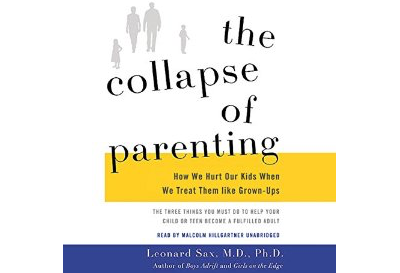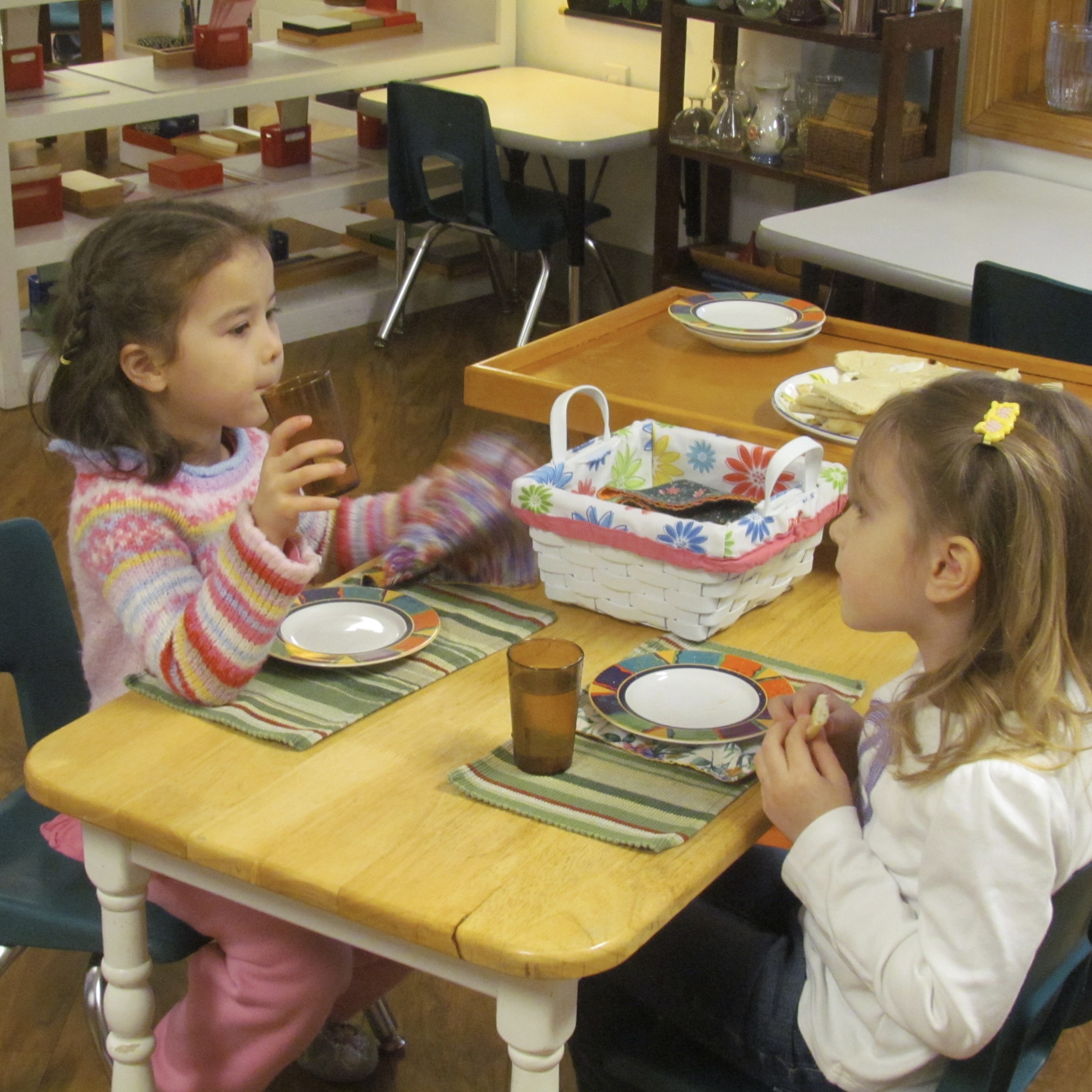An excerpt from The Collapse of Parenting by Dr. Leonard Sax
Many of the problems we see with North American kids today— the defiance, the disrespect, the disconnection from the real world— can be traced to the lack of a strong attachment between parents and their kids. As Dr. Gordon Neufeld writes, “the waning of adult authority is directly related to the weakening of attachments with adults and their displacement by peer attachments.”
Consider an acorn. Its strong shell prevents it from growing until the time is right. If you break open the shell too early, you don’t stimulate the growth of a new tree. You just have a dead acorn. As with the acorn, the key to healthy child development is to do the right thing at the right time. Neufeld makes a strong case that the wrong attachment style in childhood and adolescence results in the wrong attachment style in early adulthood. Throughout childhood and adolescence, the primary attachment of a child should be to the parent. If a child has a strong primary attachment to a parent from infancy through adolescence, then when the child becomes an adult, that bond will break naturally, as an acorn breaks open naturally at the right time so that a new tree can grow. Such a child, once she becomes an adult, is ready to head out confidently into the world as an independent young adult. But increasingly, Neufeld and others have found, young people across North America just are not ready to step into the adult world. The same girl who refused to talk with her mom at 13 years of age is now texting her mom 5 times a day at age 22, asking for basic guidance about adolescent concerns. The acorn, having broken open too early, does not have the strength to become a tree. Parents have to regain the central place in the lives of their children, displacing same-age peers. Same-age friends are great for your child. But your child’s first allegiance must be to you, not to her best friend. The contemporary culture of texting, Instagram, YouTube, Twitter, Facebook, and online video games has concealed this fundamental reality, promoting and accelerating the premature transfer of allegiance to same-age peers.
Why are American kids today so fragile? The fundamental reason is the breaking of the bonds across generations, so that kids now value the opinions of same-age peers or their own self-constructed self-concept more than they care about the good regard of their parents and other adults. The result is a cult of success, because success is the easiest way to impress your peers and yourself. But the cult of success just sets the kid up for catastrophe when failure arrives. And failure will come, sooner or later. Failure comes to us all. The willingness to fail, and then to move on with no loss of enthusiasm, is a mark of character.
The opposite of fragility is the willingness to fail. When kids are secure in the unconditional acceptance of their parents, they can find the courage to venture and to fail. When kids value the good regard of their peers or their own self-concept above the good regard of their parents, they lose the willingness to fail. They become fragile.
Teach humility. In addition to having your kids do chores, I also recommend limiting kids’ use of social media: Instagram, Facebook, ask.fm, Twitter, and so on. Many other authors have made a similar recommendation, though on different grounds. Some are concerned about sleep deprivation resulting from too much screen time. Others are concerned about cyberbullying or sexting via social media. Still others are concerned about the way kids’ use of social media seems to undermine social skills in the real world. These concerns are valid. But I am making a different point. I have observed that even when kids use social media appropriately— no cyberbullying, no sexting — the culture of social media is the antithesis of the culture of humility. Social media, as those media are actually used by children and teenagers, are all about self-promotion: Here I am at the party, having a great time. Here I am getting dressed for the prom. Here I am sticking my finger up my nose. Here I am. Look at me. It’s all about broadcasting and aggrandizing the self. I am well aware that social media can be used to call attention to the plight of the poor and the homeless. But that’s not the way most American kids are using these sites. I have encountered kids whose parents are trying to do everything right according to the guidelines laid out in this book, but the kids are still disrespectful, disengaged from parents, and defiant. Increasingly I am finding the root cause is the kids’ involvement with social media.
Meanwhile, the parents debate whether or not they should be their kid’s Facebook friend; whether or not they should follow their kid’s Instagram feed. My answer is that if your son or daughter is bound up in the American culture of disrespect, then maybe your son or daughter should not be on Facebook or Instagram at all. Turn off the device and take your child for a walk through the woods or on a hike up a mountain. Go on a camping trip. Late at night, when it’s absolutely dark, take your child’s hand and ask her to look up at the stars. Talk with her about the vastness of space and the tininess of our planet in the universe. That’s reality. That’s perspective. It’s also a good way to begin to teach humility.







